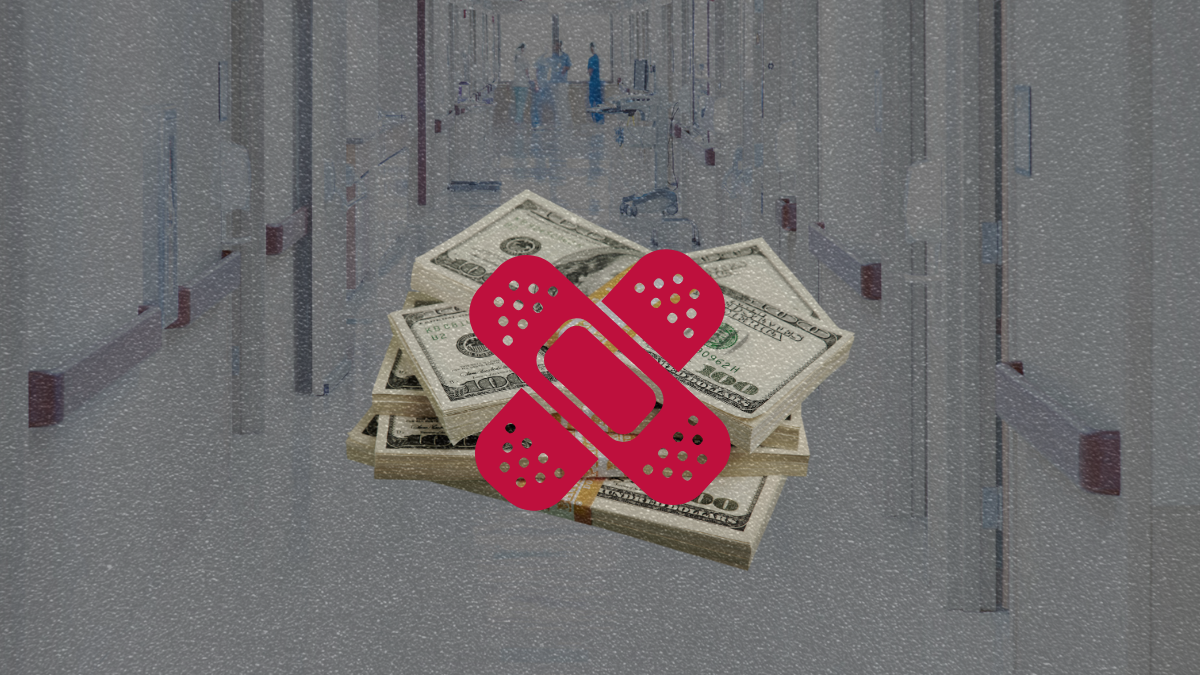Source: NC Health News
Earlier this year, Trinity Moravian Church in Winston-Salem gained national recognition for an exceptional act: erasing nearly $3.3 million in medical debt for 3,355 local families living below the poverty line.
Achieving this feat with an average Sunday attendance of around 75, the small church raised $15,000 and collaborated with RIP Medical Debt, a national nonprofit that purchases and forgives unpaid medical debt.
RIP Medical Debt has successfully eliminated billions of dollars in medical debt nationwide within a decade. Recent campaigns in North Carolina specifically benefited residents in Davidson, Forsyth, Durham, Orange, and Wake counties.
However, when retired Atrium Health physician Chris Lakin approached RIP to initiate a campaign for debt forgiveness for Charlotte residents, the charity encountered a roadblock. The challenge was not the absence of medical debt in Charlotte but rather the reluctance of Atrium Health and Novant Health, the area’s two major hospital systems, to sell or donate their bad debt to RIP, according to NC Health News.
According to RIP spokesperson Daniel Lempert, RIP’s inability to purchase sufficient qualifying medical debt in Mecklenburg County was the primary obstacle. Despite the evident medical debt issue in Charlotte, the hospitals were unwilling to collaborate.
In the context of escalating healthcare costs, an August 2023 poll commissioned by RIP, in conjunction with the American Cancer Society and the Leukemia and Lymphoma Society, revealed that nearly seven in 10 U.S. adults received medical bills they couldn’t afford. Furthermore, about half of U.S. adults were unaware that healthcare providers offer financial assistance.
Mecklenburg County faces a particularly acute medical debt problem, with 18 percent of families having medical debt in collections, exceeding the national average of 13 percent, according to data from the Urban Institute. Nationally, medical debt is a significant factor in two-thirds of bankruptcies.
Lakin, baffled by Atrium’s and Novant’s reluctance, sees an opportunity for positive public relations for the hospitals and a chance to make a substantial impact on people’s lives. However, the hospitals contend that they already have charity policies and financial assistance programs in place.
Founded in 2014, RIP Medical Debt operates by buying large bundles of delinquent medical debt and forgiving it, providing relief to individuals earning less than 400 percent of the federal poverty level or those whose debts exceed 5 percent of their annual income. A $1 donation to RIP, on average, erases about $100 in debt.
While RIP campaigns are typically initiated by charitable organizations, governments have also participated. Notably, some local officials used federal COVID relief funding to eliminate medical debt in their communities.
Despite RIP’s assurance that its program would complement existing financial assistance programs, Atrium and Novant emphasize their robust policies and practices. They argue that working with RIP could undermine efforts to encourage people to enroll in Medicaid.
RIP contends that its program could enhance hospitals’ financial assistance programs, reaching families earning up to 400 percent of the federal poverty level, beyond the scope of Atrium and Novant. It could also serve as a safety net for patients who might not be identified by hospitals’ existing assistance programs.
Atrium and Novant remain hesitant, asserting that RIP’s proposal conflicts with their carefully crafted charity care policies. Despite these challenges, RIP Medical Debt continues its mission to alleviate the burden of medical debt for those in need.





